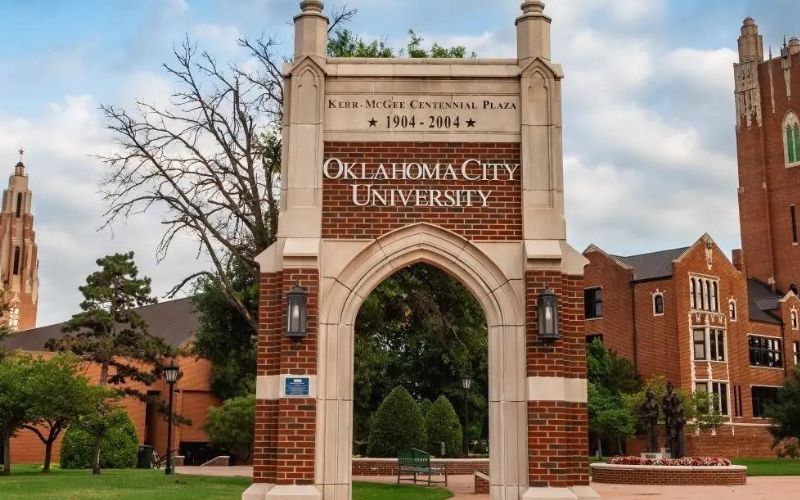
- Details
- By Native News Online Staff
Oklahoma City University and the Oklahoma City University School of Law on Tuesday announced the formation of a new institute for the advancement of tribal sovereignty.
The OCU Tribal Sovereignty Institute will be housed at the Oklahoma City University School of Law in downtown Oklahoma City, with the aim of producing scholarship on the topic of sovereignty; elevating understanding about sovereignty; educating and training lawyers with expertise in American Indian law; and ultimately pursuing sovereignty initiatives beyond the legal realm through cultural preservation, language revitalization and economic development, according to OCU Law Dean David Holt.
Holt made the announcement during the opening day of the 36th annual Sovereignty Symposium on June 13, an annual event established to provide a forum where Oklahoma 39 tribes can come together with federal and state officials to discuss common legal issues.
Holt said the OCU Tribal Sovereignty Institute will address a critical need.
“Policymakers need more independent, credible information on this topic,” Holt said of the Tribal Sovereignty Institute. “All government entities, law firms, and tribes need attorneys who are knowledgeable in these areas. Considering our existing work and our location, we think that OCU and OCU Law are ideal institutions to meet this need. This Institute will further establish our law school, our university and our city as leaders at the forefront of these sovereignty conversations.”
Holt said that the first step in developing the Tribal Sovereignty Institute will be hiring an executive director over the next year, who will also serve as a full-time faculty member at the OCU School of Law.
Gov. Bill Anoatubby of the Chickasaw Nation said at the symposium that he believes the forthcoming OCU Tribal Sovereignty Institute will provide an important new platform to expand the conversation around sovereignty year-round.
Osage Nation Principal Chief Geoffrey Standing Bear said that as a practicing attorney and an elected tribal leader, he sees the prominence of sovereignty issues every day.
“We need information that is accessible to attorneys and policymakers and members of the public,” Standing Bear said on Tuesday. “We need focused training as well. I think this Institute can play a critical role in this regard and I’m pleased to see it launch.”
More Stories Like This
Dr. Shelly C. Lowe to Be Inaugurated as IAIA President March 26–27Tlingit Language Courses Expand for Students to Learn With Families At-Home
American Education Has Failed Its First People, But Hope Is On The Horizon
Bipartisan Vote Keeps Institute of American Indian Arts Alive and Funded
New UNLV Executive Certificate Focuses on Tribal Governance, Economic Leadership
Help us defend tribal sovereignty.
At Native News Online, our mission is rooted in telling the stories that strengthen sovereignty and uplift Indigenous voices — not just at year’s end, but every single day.
Because of your generosity last year, we were able to keep our reporters on the ground in tribal communities, at national gatherings and in the halls of Congress — covering the issues that matter most to Indian Country: sovereignty, culture, education, health and economic opportunity.
That support sustained us through a tough year in 2025. Now, as we look to the year ahead, we need your help right now to ensure warrior journalism remains strong — reporting that defends tribal sovereignty, amplifies Native truth, and holds power accountable.
 The stakes couldn't be higher. Your support keeps Native voices heard, Native stories told and Native sovereignty defended.
The stakes couldn't be higher. Your support keeps Native voices heard, Native stories told and Native sovereignty defended.
Stand with Warrior Journalism today.
Levi Rickert (Potawatomi), Editor & Publisher


